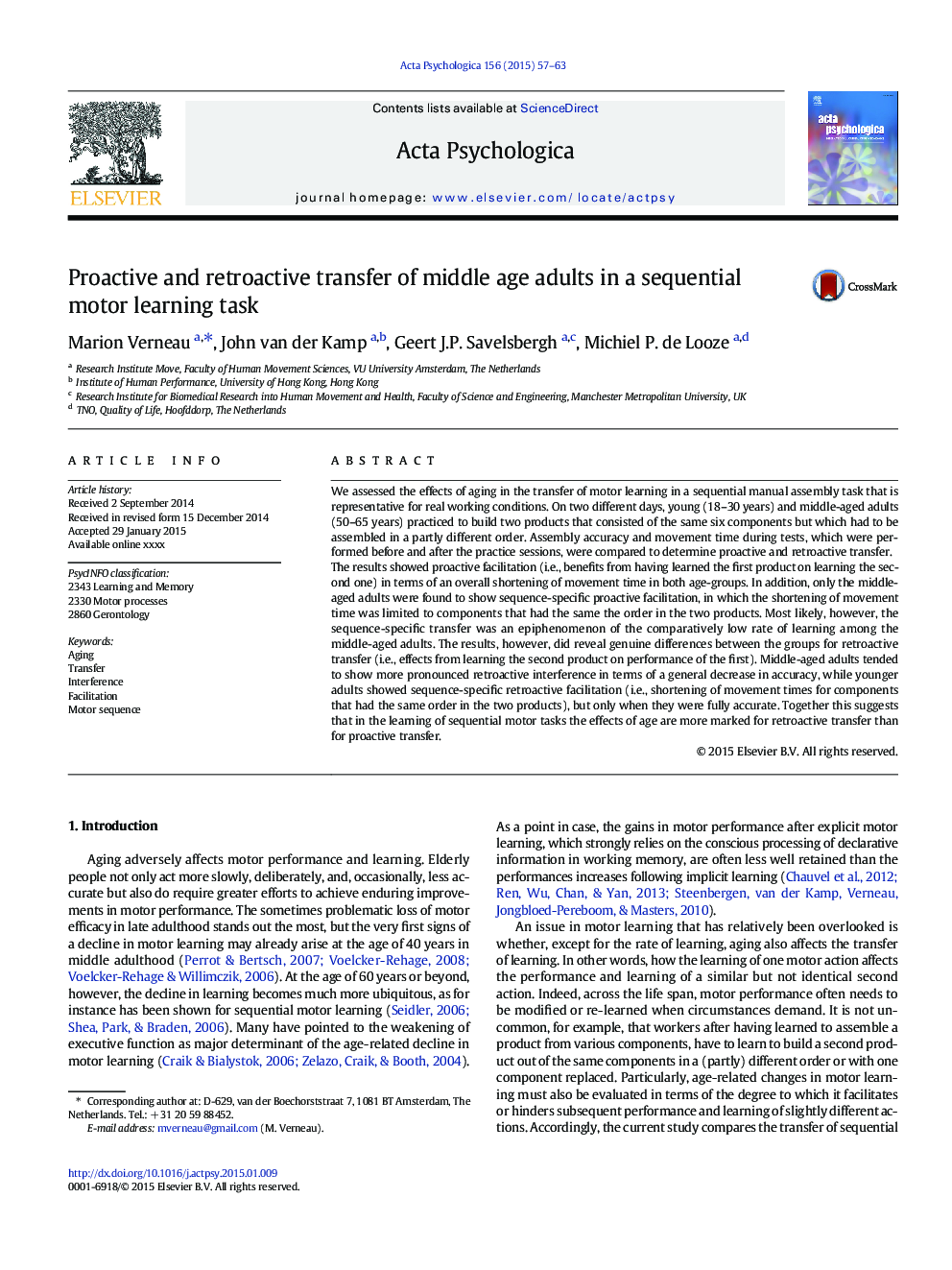| Article ID | Journal | Published Year | Pages | File Type |
|---|---|---|---|---|
| 7277441 | Acta Psychologica | 2015 | 7 Pages |
Abstract
The results showed proactive facilitation (i.e., benefits from having learned the first product on learning the second one) in terms of an overall shortening of movement time in both age-groups. In addition, only the middle-aged adults were found to show sequence-specific proactive facilitation, in which the shortening of movement time was limited to components that had the same the order in the two products. Most likely, however, the sequence-specific transfer was an epiphenomenon of the comparatively low rate of learning among the middle-aged adults. The results, however, did reveal genuine differences between the groups for retroactive transfer (i.e., effects from learning the second product on performance of the first). Middle-aged adults tended to show more pronounced retroactive interference in terms of a general decrease in accuracy, while younger adults showed sequence-specific retroactive facilitation (i.e., shortening of movement times for components that had the same order in the two products), but only when they were fully accurate. Together this suggests that in the learning of sequential motor tasks the effects of age are more marked for retroactive transfer than for proactive transfer.
Keywords
Related Topics
Life Sciences
Neuroscience
Cognitive Neuroscience
Authors
Marion Verneau, John van der Kamp, Geert J.P. Savelsbergh, Michiel P. de Looze,
